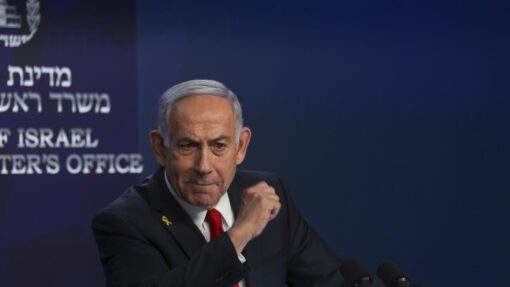Minister defends UN vote for Palestine resource rights
Dominic Giannini |

Australia is supporting a push for Palestinian sovereignty over natural resources, arguing Israel impeding access undermines stability and peace prospects.
A United Nations draft resolution that passed overwhelmingly demanded Israel “the occupying power, cease the exploitation, damage, cause of loss or depletion and endangerment of the natural resources in the Occupied Palestinian Territory”.
It further recognised the right of Palestinians to claim restitution for losses during peace negotiations between Israel and Palestine and reaffirmed Israeli settlements and deprivation of resources in occupied territories were illegal.
It also called for Israel to stop destroying vital infrastructure including water and sewage pipelines, electricity networks and Palestinian homes including in the Gaza Strip, where its war against Hamas continues.
A second draft resolution called for Israel to assume responsibility and pay compensation to Lebanon and other affected nations for an oil spill in 2006 resulting from an Israeli strike on oil storage tanks.

The two resolutions were in a committee and their passing means they will come before the UN General Assembly for a formal vote, which is non-binding.
The support marks a departure from Australia’s previous position, where it voted no on the oil spill and has abstained from the resource sovereignty resolution since 2011, when it switched from no.
A spokeswoman for Foreign Minister Penny Wong noted Australia didn’t agree with everything in the text, despite supporting the sovereignty resolution.
“This vote reflects international concern about Israeli actions that impede access to natural resources, and ongoing settlement activity, land dispossession, demolitions and settler violence against Palestinians,” the spokeswoman said.
“We have been clear that such acts undermine stability and prospects for a two-state solution.”
Australia’s reservations about the Lebanese oil spill resolution include that it made no mention of listed terror group Hezbollah’s actions, but voted for it to reflect international concern about the destruction and civilian casualties.
A humanitarian crisis in Gaza sparked by Israel’s counteroffensive to Hamas’ terror attack in October 2023 has resulted in more than 43,000 deaths, according to the local health ministry.
Australia has raised concern about an Israeli law seeking to undermine the operations of the UN Agency for Palestine Refugees (UNRWA) in Gaza and the wider region.
Deputy Liberal leader Sussan Ley attacked Labor for breaking ranks with the US at the UN, which Australia has done previously under the Albanese government.
Senior minister Jason Clare pointed out the Liberals were against American calls for a ceasefire.
Jewish groups in Australia have condemned the government’s support of the resolution, saying it constituted abandonment of Israel as it fought an existential war against Iran and proxies like Hamas.

The vote on the oil spill didn’t build momentum towards peace and ignored the destruction Hezbollah caused during the 2006 war with Israel, Australia/Israel and Jewish Affairs Council executive director Colin Rubenstein said.
The Australia Palestine Advocacy Network welcomed the votes, saying it was a step towards upholding international law and Palestinian rights.
The sovereignty resolution was supported by 159 members including the UK and New Zealand.
Seven nations voted against it, including the United States, Canada and Israel, while 11 abstained.
The Lebanon oil spill resolution passed with 161 votes and seven against, including the US, Canada and Israel.
AAP


